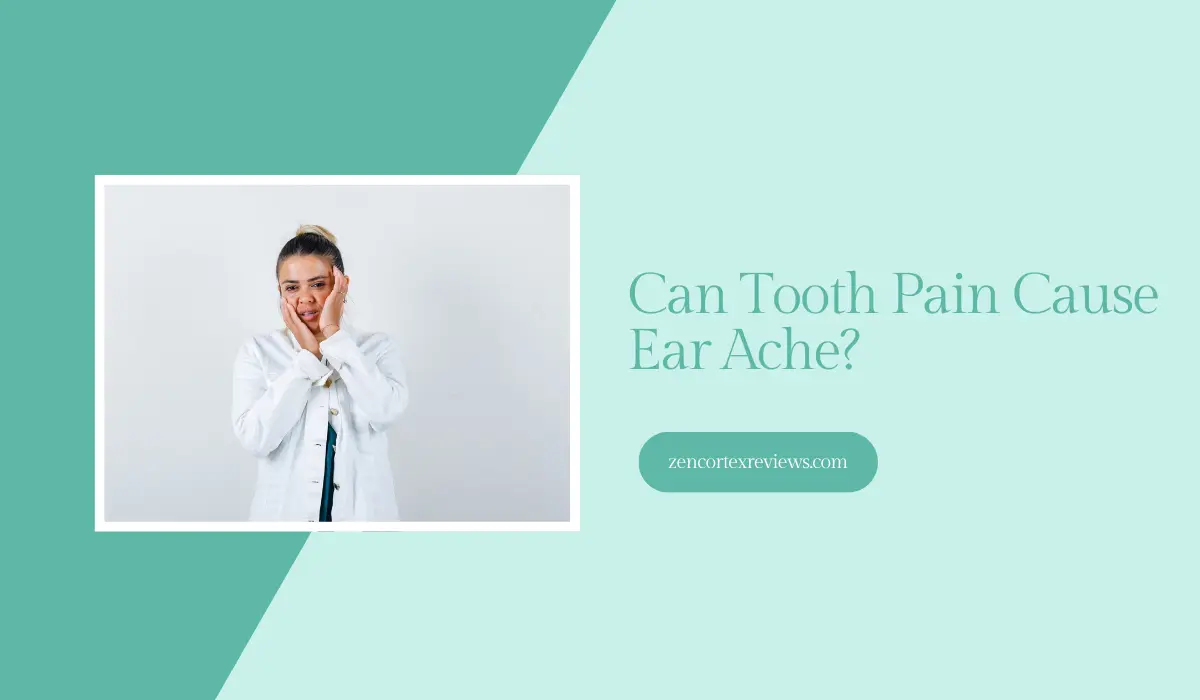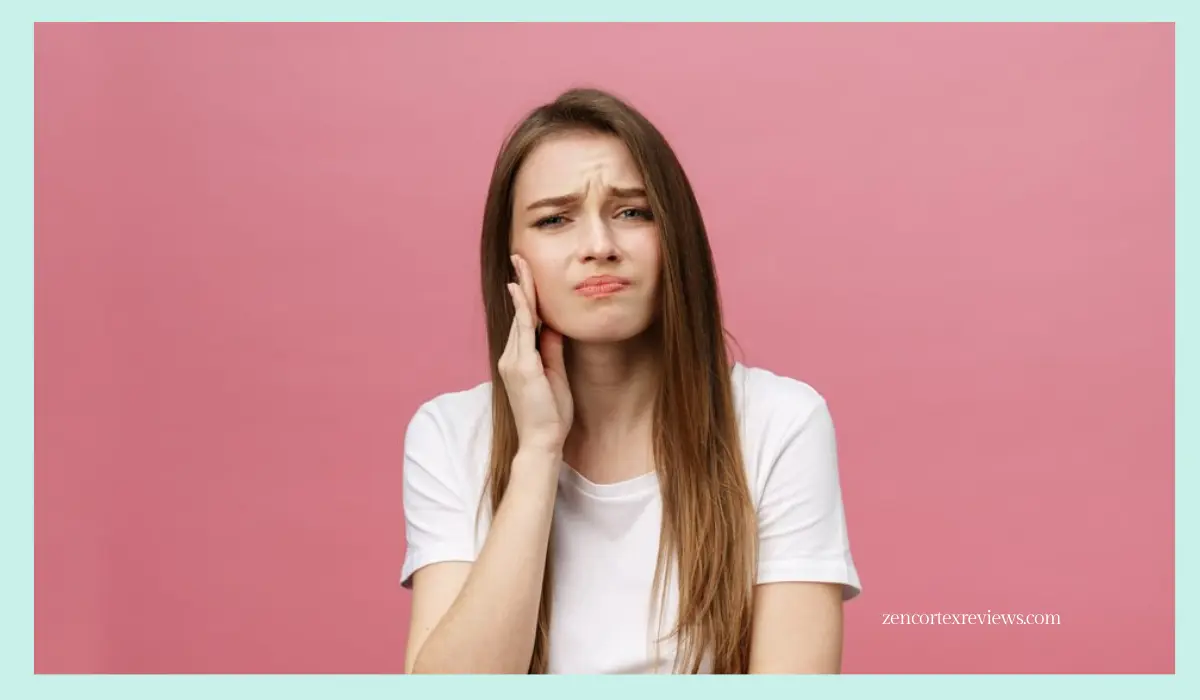Can Tooth Pain Cause Ear Ache? How To Relieve It?
Inquiring about the potential correlation between tooth pain and earaches is a question within the realm of health and anatomy. This inquiry delves into the interconnectedness of the oral and auditory systems, seeking to understand if discomfort in one area can manifest in another. Exploring the relationship between tooth pain and earaches can provide insights into potential underlying conditions or shared neural pathways, aiding in diagnosis and treatment strategies.

Disclaimer: Our recommendations are sincere, driven by the products’ benefits. When you buy through our links, we may earn a commission, backing our testing and development at no extra cost to you.
When it comes to dealing with pain, few experiences are as disruptive and uncomfortable as the combination of a toothache and an earache. These two seemingly unrelated conditions can often occur simultaneously, leaving you puzzled and seeking relief. In this comprehensive article, we’ll delve into the intricate connection between tooth pain and ear pain, exploring the potential causes, symptoms, and effective remedies to help you find solace.
Can Tooth Infection Cause Clogged Ears?

While a direct connection between tooth infections and clogged ears may not be immediately apparent, there is a potential link. When a tooth becomes severely infected, the resulting inflammation can spread to nearby tissues, including the Eustachian tubes that connect the middle ear to the back of the throat. If these tubes become swollen or obstructed, it can lead to a feeling of ear pressure, fullness, or even temporary hearing loss, mimicking the sensation of clogged ears.
Gum And Ear Pain On The Same Side
In some cases, individuals may experience gum pain and ear pain on the same side of their face. This scenario can arise when there is an underlying gum infection or periodontal disease affecting the teeth and surrounding tissues. The inflammation and swelling associated with gum disease can radiate to nearby structures, including the ear canal and temporal bone area, resulting in referred pain or discomfort in the ear region.
What Does It Mean If A Toothache Causes Ear Pain Too?
If you’re experiencing a toothache that seems to be causing ear pain as well, it’s important to understand the potential implications. This combination of symptoms can indicate an underlying dental issue that requires prompt attention, such as an infection or abscess in the tooth or jawbone. Ignoring these signs can lead to further complications, including the spread of infection to other parts of the body or the development of more severe ear-related issues.
Toothache And Ear Pain On The Same Side
It’s not uncommon for individuals to experience a toothache and an earache on the same side of their face. This correlation is often indicative of a shared underlying issue or anatomical proximity. The trigeminal nerve, which is responsible for sensation in the face, jaw, and teeth, has branches that extend to the inner ear region. When this nerve becomes irritated or inflamed due to a dental problem, such as an infected tooth or gum disease, it can trigger referred pain in the ear area.
Ear And Tooth Pain On The Right Side
When you experience tooth pain and ear pain on the right side of your face, it’s essential to pay close attention to the specific location and intensity of the discomfort. This scenario may be caused by an upper molar or wisdom tooth infection, which can lead to pressure buildup and inflammation in the surrounding tissues, including the ear canal and temporal bone area. Additionally, issues with the temporomandibular joint (TMJ) or jaw muscles on the right side can contribute to this localized pain pattern.
Ear And Tooth Pain On The Left Side
Similar to the right side, tooth pain and ear pain on the left side of the face can have various causes. It could be related to an infected or abscessed lower molar or wisdom tooth on the left side, which can affect the nearby ear region through nerve connections and inflammation. Alternatively, sinus infections or blockages on the left side can sometimes radiate pain to both the ear and teeth, creating a confusing combination of symptoms.
Toothache And Earache At Night
For many individuals, toothache and earache seem to intensify at night, disrupting sleep and causing significant discomfort. This phenomenon can be attributed to several factors. During the night, when you’re lying down, the inflammation and pressure associated with dental issues or ear infections can worsen due to gravity and fluid buildup. Additionally, the lack of distractions and increased sensitivity to pain at night can amplify the perception of discomfort.
How To Relieve Ear Pain From Toothache
When faced with the discomfort of ear pain caused by a toothache, there are several steps you can take to find relief:
- Over-the-counter pain medication: Anti-inflammatory drugs, like ibuprofen or naproxen, can help reduce inflammation and alleviate both tooth and ear pain.
- Cold or warm compresses: Applying a cold compress to the affected area can help reduce swelling, while a warm compress can provide soothing relief by increasing blood flow and relaxing muscles.
- Saltwater rinses: Gargling with warm salt water can help reduce inflammation and promote healing in the mouth and throat area, potentially relieving pressure on the ear.
- Dental treatment: If the pain persists or worsens, seeking professional dental care is crucial. Treatments such as root canal therapy, tooth extraction, or antibiotics may be necessary to address the underlying dental issue and resolve the associated ear pain.
Home Remedies For Toothache And Ear Pain In The Same Side
While seeking professional medical or dental attention is always recommended, several home remedies can provide temporary relief for toothache and ear pain on the same side:
- Clove oil: Applying a small amount of clove oil directly to the affected tooth can help numb the pain due to its natural analgesic properties.
- Garlic: Chewing on a clove of fresh garlic or applying garlic ear drops to the affected area can help reduce inflammation and promote healing.
- Ginger: Consuming ginger tea or chewing on fresh ginger root can provide anti-inflammatory benefits and relief from pain.
- Peppermint: Applying a few drops of peppermint oil or chewing on fresh peppermint leaves can help soothe both toothache and ear pain due to its cooling and analgesic effects.
- Salt pack: Heating a small cloth filled with salt and placing it against the affected area can help reduce swelling and provide warmth therapy.
It’s important to note that while these home remedies can offer temporary relief, they should not be considered a substitute for professional medical or dental treatment, especially if the pain persists or worsens.
Final Note
The connection between toothache and ear pain is a complex and often intertwined phenomenon. By understanding the potential causes, recognizing the symptoms, and exploring both professional treatment options and home remedies, you can take proactive steps toward finding relief and addressing the underlying issues. Remember, seeking prompt medical or dental attention is crucial when experiencing persistent or severe pain, as early intervention can prevent further complications and promote overall well-being.
References
Lindsay Martinez
Lindsay Martinez, Au.D., is a licensed audiologist with over 10 years of experience in the field of hearing healthcare. She earned her Doctor of Audiology degree from the University of California, Los Angeles, and currently practices at Martinez Hearing Clinic, a leading audiology practice in the San Francisco Bay Area. As an expert in diagnosing and treating a wide range of hearing disorders, Dr. Martinez specializes in fitting advanced hearing aids and assistive listening devices. She is a fellow of the American Academy of Audiology and has published numerous peer-reviewed articles on topics such as noise-induced hearing loss and the latest innovations in hearing technology. Passionate about patient education, Dr. Martinez is committed to helping her patients improve their hearing and overall quality of life.
